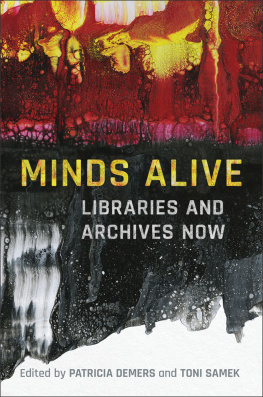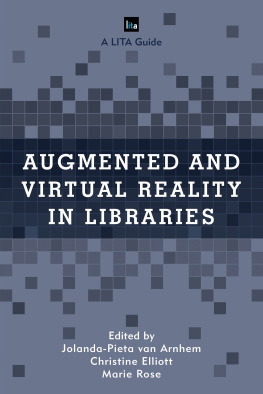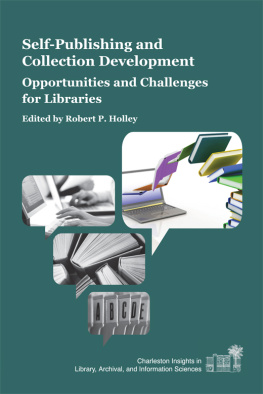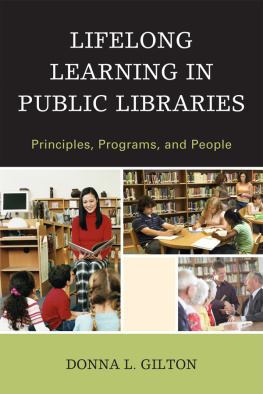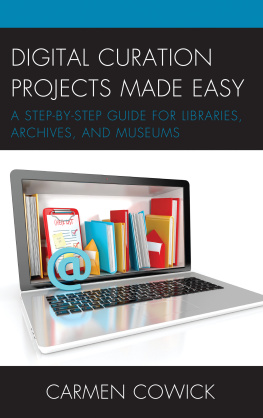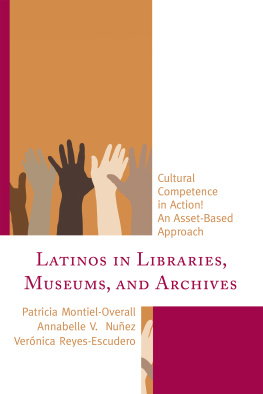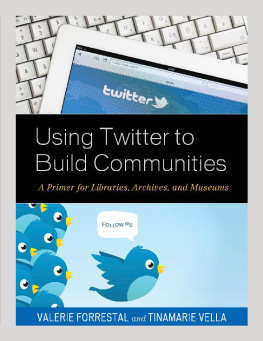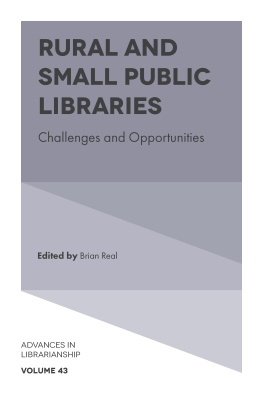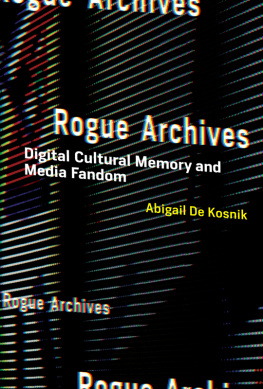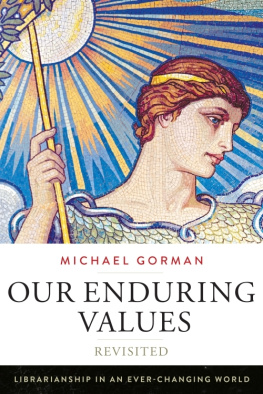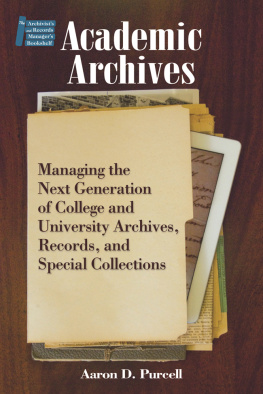MICHAEL W. CARROLL
GEOFFREY ROCKWELL, SARAH VELA, LISA M. CERRATO, MIHAELA ILOVAN, STAN RUECKER, PERSEUS DIGITAL LIBRARY, AND THE INKE RESEARCH GROUP
RICHARD J. COX
BRENDAN F.R. EDWARDS
FRANK J. TOUGH
Foreword
TAMI OLIPHANT AND ALI SHIRI
Libraries and archives are vital to public life in the digital age. They are places and spaces that promote connection, creativity, and intellectual curiosity. That is the essential and timely message of Minds Alive: Libraries and Archives Now, an outstanding collection of essays curated and edited by Patricia Demers and Toni Samek. The critical question explored in this volume is: What are the roles of libraries and archives and librarians and archivists in public life in the digital age? The genius of this work lies in Demers and Sameks brilliant editorial choices responding to this query: they have selected original contributions from international scholars with disparate academic and cultural perspectives. Demers and Samek helpfully divide the monograph into five sections to illuminate topics involving libraries and archives as institutions and institutional partners, the professional roles and responsibilities of librarians and archivists, and the ways in which librarians and archivists continue to respond to the networked age, digital culture, and digitization.
In the opening section, Enduring Values, Alice Crawford, Guylaine Beaudry, and Marc Kosciejew argue that libraries and archives are dynamic and organic institutions that serve individuals, communities, and the public; act as social hubs; and preserve, and provide access to, information, knowledge, and cultural heritage. The value of libraries lies in their core mission as community-focused and user-centred institutions that provide unfettered access to quality information, diverse services and resources, public space, the free exchange of knowledge and ideas, and support for education, culture, economy, and democracy.
In fulfilling this mission, librarians and archivists continually adopt novel technologies and tools to digitize, process, organize, and represent new digital artefacts, take innovative physical and digital design approaches to public spaces and digital interfaces, and curate new collections in efforts to meet the expectations of various communities topics considered by Konstantina Martzoukou and Seamus Ross and illustrated with a case study of the Perseus Digital Library by Geoffrey Rockwells team. Essays by Michael Carroll, Brendan Edwards, and Nigel Raab discuss the ways in which mass digitization in libraries, archives, and museums provides new methods of preserving cultural memory and heritage and the crucial responsibility that information professionals have in devising approaches that offer seamless, meaningful, and relevant access to digital content. Carolyn Guertin, Mario Hibert, Frank J. Tough, and Richard Cox argue that information professionals and archivists must constantly interrogate the values that underpin practice, consider the interdisciplinary nature of their work to move beyond the silos in which this work takes place, re-examine and repoliticize practice, and understand both the historical roots and the current contexts in which libraries and archives are situated.
Central to this volume is the acknowledgment that libraries and archives and the roles of librarians and archivists are contested. These institutions and professionals both shape and are shaped by the people they serve and broader social forces. In an era of networks, digitization, convergence, information and data glut, and a heightened politicized and corporatized context, this collection of essays is a call for academics and professionals to be proactive, to resist and respond, and to continuously scrutinize practices in order to sustain libraries and archives as vital institutions that keep Minds Alive.
Acknowledgments
Academic work is collaborative, involving conversations with people and ideas, past and present, those in the room with us or connected on a screen or a page. It also relies on creative intersections, some planned and others serendipitous. This collection has emerged from a true multilogue of events and influences. We are delighted to acknowledge our indebtedness to many sources of encouragement. We thank the Royal Society of Canadas expert panel on libraries and archives, whose consultative work and report, generously supported by the Office of Provost at the University of Alberta, led to the germination of this volume. We thank the online Around-the-World conference on Libraries, Archives, and Public Life, sponsored by the Kule Institute for Advanced Study at the University of Alberta, for initiating the conversations among many of this collections contributors. We are especially grateful to Dr Adam Dombovari, Dr Kirsten Uszkalo, and our colleagues in the School of Library and Information Studies for participating so energetically in planning and helping to run this exceptional day and manage the resultant archive. We thank our contributors for their thoughtful, provocative essays, in which their communal discourse carried on in writing. We are honoured to include the commissioned art of Brenda Morency on our cover. The encouragement of Mark Thompson from the University of Toronto Press has spurred us on to completion, and the insightful comments of our reviewers have helped to strengthen the collection. Throughout the process of inviting, assembling, and arranging contributions, our sharp-eyed, thorough, troubleshooting copy editor Leah Brochu has been absolutely invaluable. The fact that Leah has completed her masters degree in library and information studies at the University of Alberta is a heartening forecast for the future of the profession.

